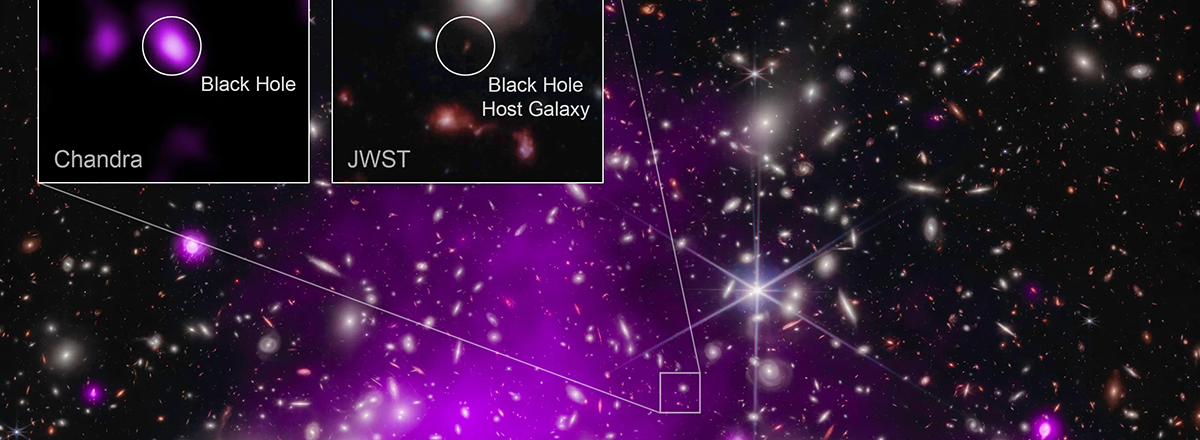Astronomers Discover Universe's Oldest Black Hole, Challenging Theories
What's surprising is not only its incredible age but also its massive size, approximately a million times the mass of our Sun. This finding has raised questions about how such a colossal black hole could have formed so rapidly.

Astronomers using NASA's James Webb Space Telescope and the Chandra X-ray Observatory have made a groundbreaking discovery – the oldest black hole ever observed. This cosmic behemoth, formed just 470 million years after the Big Bang, is challenging existing theories about the origins of supermassive black holes.
The black hole resides at the heart of a galaxy situated 13.2 billion light-years away from Earth. What's surprising is not only its incredible age but also its massive size, approximately a million times the mass of our Sun. This finding has raised questions about how such a colossal black hole could have formed so rapidly in the early universe.
Previously, scientists believed that supermassive black holes gradually grew larger over billions of years, mainly through mergers and the accretion of stars and matter. However, the discovery of this ancient black hole suggests that they may have originated differently.
One hypothesis is that these early black holes formed from the direct collapse of immense gas clouds rather than being the end result of stars' collapse. Another theory suggests that compact clusters of stars and black holes merged rapidly during the early universe.

